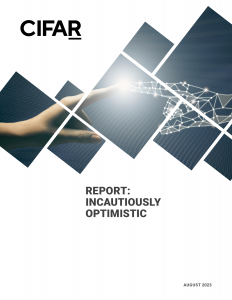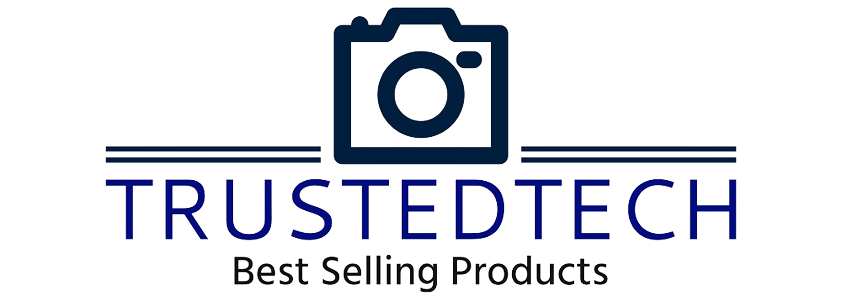
[ad_1]
Canadians are so caught up playing with the latest artificial intelligence toys and tools that we aren’t fully considering the risks presented by such emerging technologies.
That conclusion’s drawn from a new report about AI released by CIFAR, the Canadian Institute for Advanced Research. Its findings are summarized under the title Incautiously Optimistic.
One small but illustrative case in point: there were more searches for “ChatGPT” than searches for “AI” itself in the first part of this year.
Incautiously Optimistic offers information and action items that can promote AI for public good, including ways to counter built-in AI system biases through accountable product development and implementation. It calls for greater public engagement in policy and regulation design; and it presents tools to raise AI literacy overall so we can better understand the risks and opportunities that AI advancements pose.
One such tool is a new free online course, launched by CIFAR in French and English, called Destination AI.
Elissa Strome, executive director of the Pan-Canadian AI Strategy at CIFAR
“Many of today’s global AI tools have come about because of Canadian-led research, and we continue to play a leading role in the advancement of responsible AI,” Elissa Strome, executive director of the Pan-Canadian AI Strategy at CIFAR, described when the online course was launched. “Continuing along this path, Canadians can and should demand that companies and institutions deploy these technologies responsibly and safely, with rules enforced by our governments and regulatory bodies. To do this, we need an informed public, and this course is a step towards that.”
Canadians appear to be throwing caution to the wind, enthralled by new AI tools impacting all corners of our lives. We’re in “play mode”, report authors noted, enjoying teaser releases like ChatGPT. But we seem less aware of important concerns such as fairness and bias, obtained permission and informed consent – all essential elements when practicing “responsible AI”.
The report notes that these considerations were noticeably absent at scale in data reflecting Canadian search inquiries.
An informative and enlightening course about artificial intelligence – freely available – was recommended by the Public Awareness Working Group of Canada’s Advisory Council on Artificial Intelligence, following public consultations in 2021.)
The course can actually be completed in a day; it’s up to the learner how fast to go or how much to digest at any one time.
Using text, graphics and short video clips, the course explains basic terminology and definitions for different AI concepts like Machine Learning versus Deep Learning, or Big Data versus Data Sciences; it also seeks to debunk common AI myths like “AI programs are smarter than humans”.
Presenting and commentating about the origins, applications and anticipated uses for artificial intelligence are leading Canadian and international AI experts, including Yann LeCun, chief AI scientist, Meta; Julie Owono, executive director, Internet Without Borders; and Stuart Russell, professor, University of California, Berkeley.
They help the learner consider the ethical challenges of AI and data use related to privacy, disinformation, bias, and the all-too-human impacts that machine-led algorithmic decision-making can have.
CIFAR was called upon in 2017 to develop and lead the Pan-Canadian Artificial Intelligence (AI) Strategy, the world’s first national AI strategy. The organization is supported by the governments of Canada, Alberta and Quebec, as well as foundations, individuals, corporations and Canadian and international partner organizations.

Patricia Kosseim, Ontario’s Information and Privacy Commissioner
Other governments and institutions also have identified a need for awareness and governance of AI developments, including Ontario’s Information and Privacy Commissioner.
Patricia Kosseim called on the Ontario government to put in place a robust framework to govern the public sector’s use of artificial intelligence (AI) technologies.
“Clear and effective guardrails are needed to ensure the benefits of AI don’t come at the cost of Ontarians’ privacy and other fundamental human rights,” she stated in her 2022 annual report. “Ultimately, innovative uses of AI must be supported and sustained by public trust.”
The Information and Privacy Commissioner of Ontario (IPC) has released four new classroom-ready lesson plans to help educators teach students in grades two through eight about privacy rights, digital literacy, and online safety, just in time for back-to-school.
The free lessons were prepared at MediaSmarts, Canada’s Centre for Digital Media Literacy, in collaboration with the IPC, review privacy principles like identifying online risks, strategies to protect our own privacy, and respecting the privacy of others.
# # #

A new report about artificial intelligence (AI) released by CIFAR, the Canadian Institute for Advanced Research, offers information and action items that can promote AI for public good.
-30-
[ad_2]



